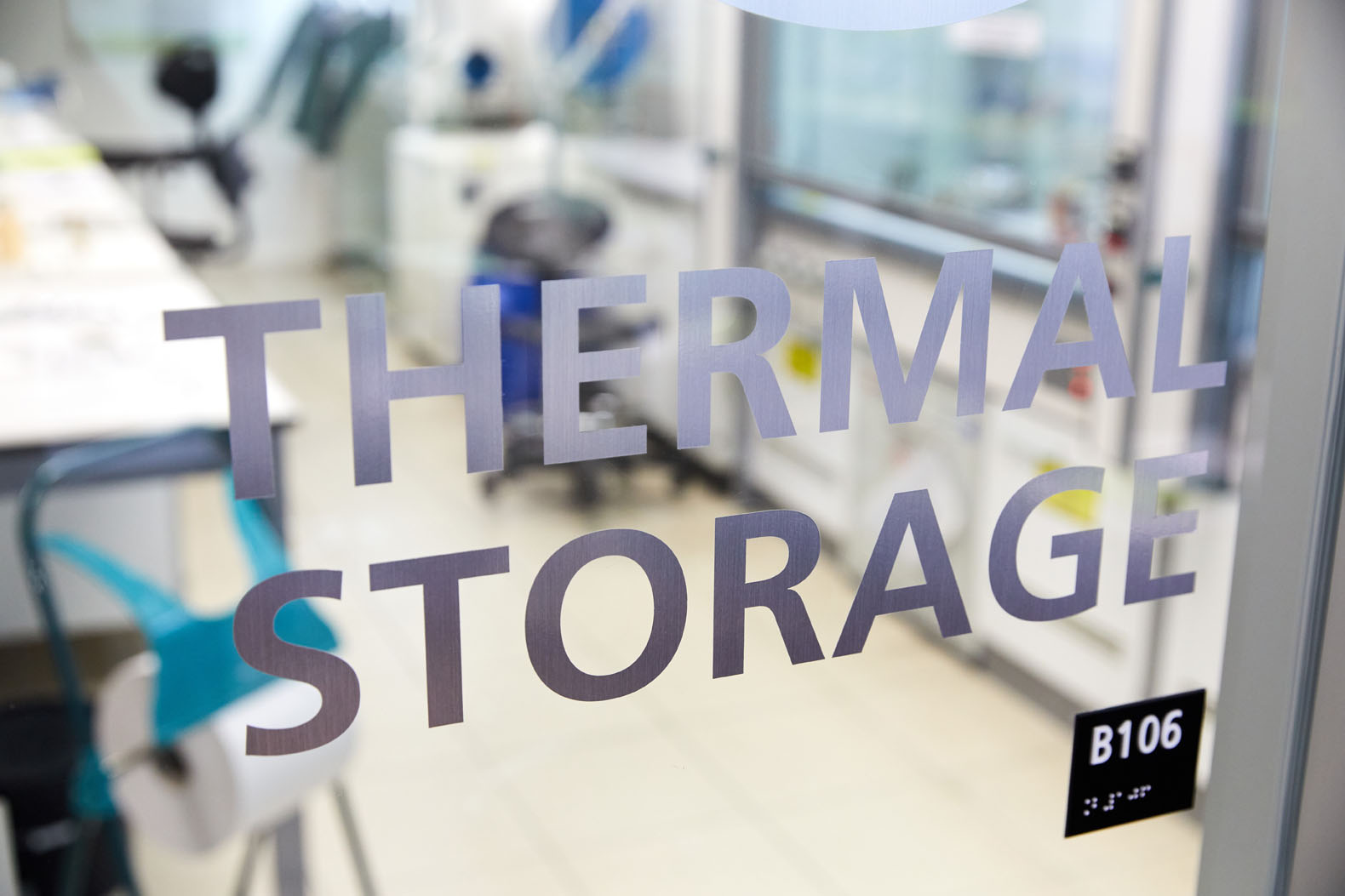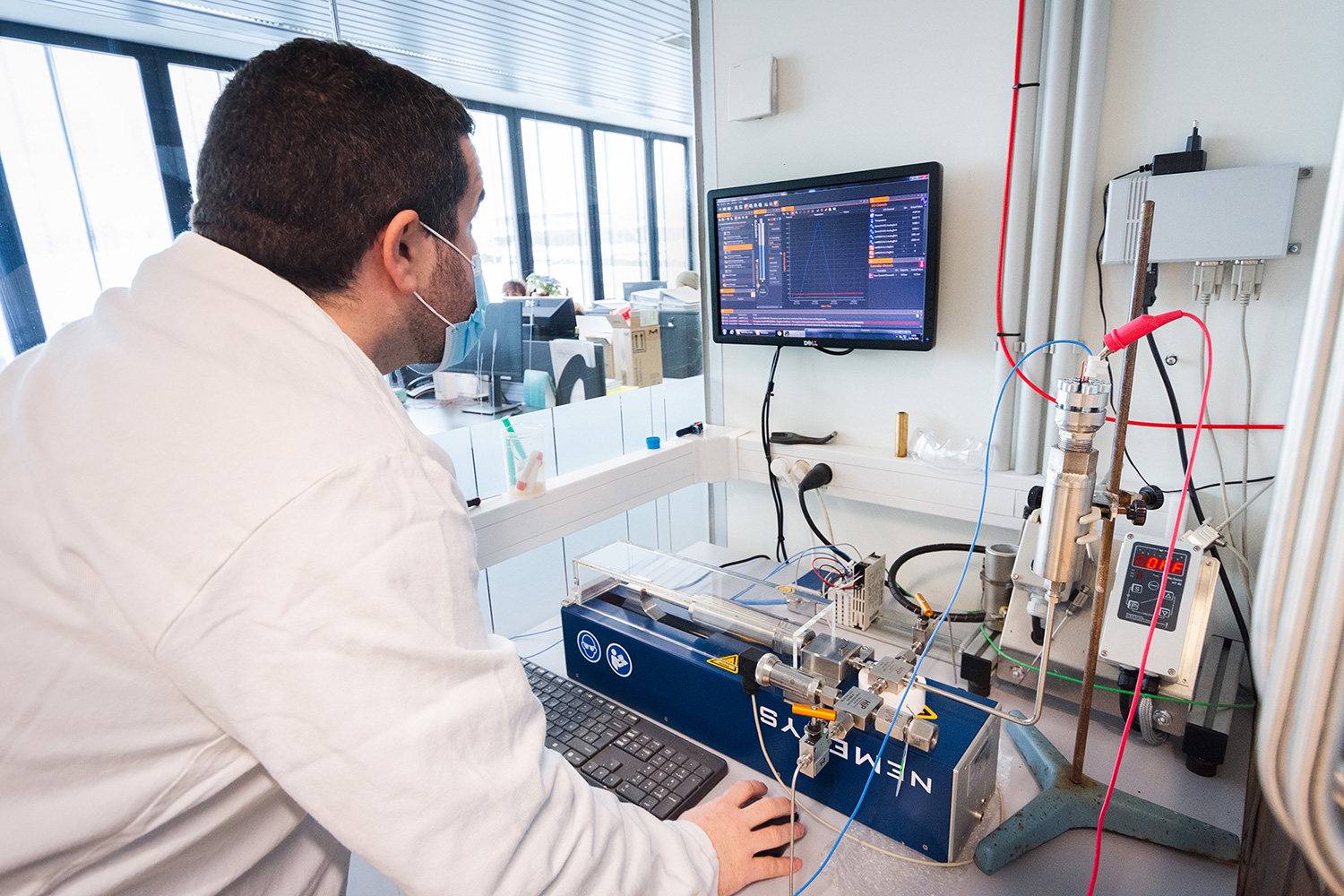CIC energiGUNE, the Basque research center of reference in electrochemical and thermal energy storage and a member of the Basque Research & Technology Alliance-BRTA, will coordinate a European project FET-PROACTIVE which will aspire to recover the environmental heat and the vibrations generated by the systems in order to transform them into useful electricity. The project, named ELECTRO-INTRUSION and entirely financed by the EU through the Horizon 2020 program, has a 3.6 million euros budget and a development deadline of 48 months.
“The goal of this proposal is to obtain the appropriate technology and tools in order for us to be capable of recovering the energy generated by the vibrations of cars, trains and, even, the washing machines in our houses, and transform it into electricity”, has stated Elena Palomo, Scientific Director of the Thermal Storage Area at CIC energiGUNE. “According to the estimations of the EU itself, if we achieve to apply this technology in the automotive sector, we could reduce the consumption of electricity up to a 4% by the year 2050”.
In this way, apart from improving the energetic efficiency at a global scale, important steps would be taken towards the reduction of emissions of greenhouse effect gases and the consolidation of a mobility model based on hybrid and electric vehicles. “We have created a powerful consortium with multidisciplinary teams specialized in physics, chemistry, materials science and engineering which will allow us to shed light upon the knowledge gaps that still exist about nanotriboelectricity in order to propose solutions in the market and to be able to develop energy generators of a new kind”, has assured Yaroslav Grosu leader of the project and responsible of the research activity of interfacial phenomena in the area of thermal storage.
The consortium of ELECTRO-INTRUSION will develop a thoroughly applicable method for a broad range of technologies, where the vibrations and heat are available in excess. Among the sectors with the highest potential the ones highlighted are the railroad transport, aviation, the different home devices, or the drilling systems, although the one that counts with the highest capacity for development in its early stages is that of automotive industry. In this sense, the final stage of the project will imply the production of a prototype for the validation of the proposed solution on commercial shock absorbers that, in the future, will drastically improve the performance of hybrid and electric vehicles, since it currently has a large improvement margin.
The principle on which the project is based could be assimilated into a small heat-pump where, thanks to the nanoporous surface that don’t get wet, a liquid is forced to enter and come out because of the vibration movement, producing a heat that can be stored. In this way, the project aspires to combine the intrusion of liquids in nanoscopic non-moisturizing materials, which allow the recollection of thermal energy of the environment, with the triboelectric effect, a phenomenon by which two bodies that rub against each other are electrified. The use of nanomaterials allows for maximizing the solid-liquid interface and, therefore, maximizes the efficiency of this nanotechnology.
The obtaining of these types of materials would open the door to its integration in electrical appliances of common use, for example, this way these appliances could accumulate the energy tat nowadays is wasted and reuse it in the form of electricity. Nevertheless, the line of work of the project will focus specially in the development of an applicable prototype in the automotive industry.
Apart from CIC energiGUNE; Tenneco Monroe Research Innovation (Ermua-Bizkaia division), the Universitá degli Studi di Ferrara (Italy), the University of Silesia in Katowice (Poland), the National Technical University of Ukraine and the University of Birmingham (United Kingdom) take part in this consortium.





